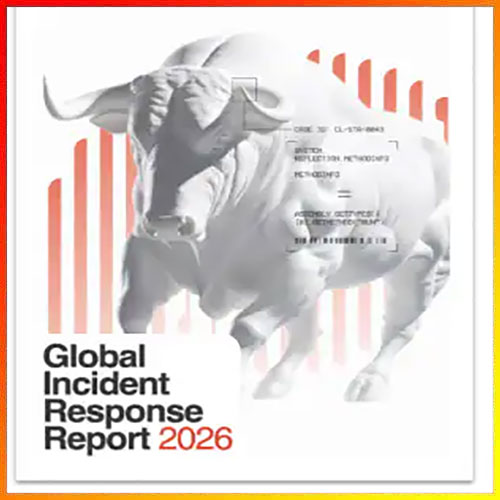
With the waning of global uncertainties, businesses are redoubling investments in IT as they anticipate revenue growth, but their spending patterns are continually shifting. The wait and watch on how the Union Budget 2020 would Fix India’s Macroeconomic Issues? BJP party members have also urged PM to announce steps to revive real estate and other sectors.
Sources said, "The country is facing a serious economic crisis, adding there was no alternative but to raise spending on infrastructure and welfare schemes to boost consumer demand and create jobs. FM Nirmala Sitharaman, who is expected to deliver the budget speech on 1st February 2020, is widely expected to announce stimulus measures for small businesses and non-banking finance companies as a cut in corporate tax rates and rate cuts by the central bank have failed to revive growth.”
While several expectations are being expressed by industry leaders, professionals as well as students, what the government actually takes into consideration can only be determined next week when the budget is issued. This year 2020-21 budget, FM Sitharaman could announce plans to spend over 105 trillion rupees ($1.48 trillion) on infrastructure in the next five years and expand annual spending on railways, roads, renewable energy, water and health sector by up to 20%. An expert says that we will see measures in the budget to boost investments and growth.
The growing momentum towards open banking models has compelled banks globally to undergo business transformation and expand their service provision to offer broader choices to their consumers, and business customers. It is revealed that while 36% of Financial Institutions are decreasing their branch network while an equal number are transforming them.
Consumer confidence is also a good indicator. The RBI's latest survey, released in December 2019, shows that the consumer sentiment is at several years' low - both the sentiment on the current situation and future expectations have plummeted in November 2019.
India's economy is expected to rebound in 2020 on the back of measures taken by the government and the RBI coupled with easing of global trade tensions.
INDUSTRY EXPECTATIONS
Munira Savai, Country Manager, QAD India
"With the implementation of GST and new policy announced around E-Invoicing, the government has demonstrated that it values technology led governance for transparency and efficiency. Over a period of time, digitization has gained its rightful importance focusing on ease of doing business.
For budget 2020, the government needs to show commitment to support the manufacturing sector by introducing favorable policies and also investing in Infrastructure. Further, incentivizing the use of emerging technologies like 5G, IoT, AI, etc. for the development of a strong and resilient domestic Manufacturing Sector is imperative. Also, in the forthcoming budget, the government can plan to embrace and adopt disruptive technologies to enhance efficient governance with e-citizen services"
CP Gurnani, Managing Director & Chief Executive Officer, Tech Mahindra
“Realizing the dream of India becoming a 5 Trillion Dollar economy by 2025 truly outlines the ‘art of possible’ and depends largely on the choices we make. Digital continues to be the cornerstone of India’s strategy, therefore, sharpening focus on enhancing skills in new age technologies like 5G, improving the quality of education, and nurturing the start-up ecosystem are some key measures that will accelerate India’s IT exports and will help sustain its global competitiveness. As part of the Union Budget 2020, we hope to see focused initiatives by the government that will help India fortify its digital growth momentum and contribute to the global growth story. With 1.3 billion consumers and a large talent base including over 400 million millennials, India can play a key role in scripting a unique success story amidst the global economic slowdown.”
Rajiv Bhalla, Managing Director, Barco India
As the country gears up for the Union Budget on Feb 1, the Indian economy is dealing with several issues including a drop in GDP, liquidity crunch, rising inflation and low tax revenue. While the Centre took multiple measures to boost the slowing economy, some of which have borne fruit, we believe that more steps are needed, especially in promoting growth in rural consumption and labour-intensive segments. Barco remains positive on the India growth opportunity and we look forward to favourable measures from the Centre, predominantly in the technology-enabled sectors and the domains we cater to – medical imaging, smart cities, technological innovation in tourism, among others.
Prashant Solomon, MD, Chintels India and the Hon. Treasurer for CREDAI NCR
“The real estate segment, especially the residential sector, saw some growth in 2019 thanks to the Centre’s strong efforts at improving liquidity and pushing growth. In the new year, we are looking forward to more such measures to boost the segment as the industry still needs various enablers to get out of the rut. We are hoping the Union Budget will announce a one-time roll over or restructuring of existing loans. We are also looking forward to the Centre’s measures aimed at improving liquidity and lowering home loan rates, taxes and stamp duties as these will ensure buying interest from end consumers.”
Dr. Sanjay Gupta, Vice-Chancellor, World University of Design
“With an eye on future, Union Budget 2020 must focus on quality and tax- free education and skill development. If we look at the current scenario, there has been a shift in the nature of jobs and career choices amongst the youth. The budget must incorporate necessary policy revisions required to meet future job demands and to make India as one of the leading higher education destinations in the world.”
Rohit Malik, Founder & CEO, Clicbrics
“Real estate is one of the key drivers of a country’s economy. Policy changes like RERA and Benami Transactions (Prohibition) Amendment Act 2016 have ensured transparency and streamlining the sector. We look forward to concrete measures around liquidity and alternate investment fund to revive consumer and investor sentiment. We also expect the government to focus on lowering of taxes, home loan rates and reduction in stamp duties which will have a positive impact on the sector.” Says
CA Maneet Pal, Partner of I.P. Pasricha & Co
“With GDP at lowest rate in 11 years, Industry expects a lot from this Budget. We believe the government should reduce GST and personal taxation rates to revive domestic consumption in economy. We also believe government might bring Tax dispute settlement scheme to recover pending disputed demands.”
Priya Mahajan Head of ASPAC Public Policy & Regulatory Counsel, Verizon
“There is great anticipation around the presentation of Union Budget 2020. As Finance Minister Nirmala Sitharaman is set to present the Union budget on February 1, we’re optimistic about the upcoming announcement. We are expecting that the government will initiate some remarkable steps to foster the growth of the Information and Communications Technology industry. A key area where ICT industry is expecting reform is ensuring predictability, consistency and rationalization of levies and taxes including a reduction in the License fee to promote innovation and investments in the sector to achieve PM Modi's Digital India vision. We hope that the government is considering rationalization of levies and taxes for ICT sector including a reduction of the license fee, which is currently at 8%.”
Akshay Singhal, Founder, Log 9 materials
“I think for startups there are already a lot of initiatives in action, improved mechanisms for execution of those schemes is extremely important. However, I am more concerned about the economy as a whole. To boost economy my suggestion would be to increase spending under Swachh Bharat Scheme may be via MNREGA to get Indian cities clean by employing the bottom of the pyramid.”
Sidhant Lamba, Founder - Fabrento
"Income tax holiday for start up should apply for all start up companies registered beginning April 2015." "Under GST, the extra GST inputs should be credited back to the startups (like for us, when we buy furniture, we have to pay gst in it, now when we rent, the gst in rent is adjusted against the already paid gst during purchase. But even then, the gst on purchase is much higher compared to what we adjust in rent, so we want that extra gst to be credited back to us."
Siddharth Jain, Co- founder, Vaahika
“Indian economy needs an urgent dose of consumption booster; thus it would be wonderful to have provisions in the budget which could assist in an instant rise in consumer expenditures. Relaxation on personal income tax rates could be one such move that can act as a booster shot. We expect the budget to bring in provisions for lesser and reduced compliance for smaller companies; which as of today have to follow almost similar compliance that of a larger corporation. We expect this budget to come up with revolutionary steps to overhaul the complete compliance and fillings guidelines for smaller companies and startups and do away with the current penal provisions. The current economic slowdown could be linked with the rapidly declining health of MSME in India; especially the ones in the manufacturing sector. Though the government has already reduced the applicable income tax for this segment; but it appears that it has not been helpful in bringing the required turnaround. More needs to be done to address the concerns of liquidity crunch, ever-increasing compliance and reducing competence for the overseas markets. It has a worse impact on the Logistics sector, especially on the small and medium-sized fleet owners. On one side it is the demand which is declining and on the other side increased operating expenditures have made it very difficult for them to even pay the EMI's regularly thereby increasing defaults. It is very much expected that the coming budget would have provisions to support not only the survival; but the revival of the logistics sector.”
Amitansu Sathpaty, Managing Director, Best Power Equipments
"There are no incentives, benefits and support for the existing MSMEs in the manufacturing sector. From the budget, we expect that the Government should create a business friendly environment by giving tax credits, free land, worker training, low interest loans, infrastructure improvements and help fast tracking licensing and permitting. The Government should also support in terms of sponsoring our sectors' exposure to the International markets. The Government's initiative to promote Make in India can only be possible when the government starts funding which will help us as a sector to represent Indian manufacturers".
Arun Nathani, CEO & MD - Cybage Software
“The Government of India has taken steps in the right direction to address the economic downturn by slashing the corporate tax rates benefitting the software industry and companies like Cybage. As part of Budget 2020, a combined step taken towards corporate tax and a roll back of DDT across board will bring in FDI and incentivize the industries to ramp up the capex/opex spend once the demand is back. Rationalizing the GST rates and compliance processes will outgrow the consumption rates. The Indian IT industry will welcome specific incentives like weighted deductions for investing in R&D of AI/BI technology tools to facilitate IT companies, Universities and Research Institutes.”
Anjani Kommisetti, Country Manager - India & SAARC, Raritan & Servertech (brands of Legrand)
“2019 has been a year of technological transformation for private sector. However, with digitalization picking up quickly, we have seen an increased rate of cyber crimes. We expect the government to help in combating cyber crimes by introducing stringent regulations to enhance the country’s cybersecurity readiness.
Last year, the government’s focus was more on elections and we saw a low action on IT infrastructure projects. This year we are hopeful to see increased investments that will encourage initiatives to faster achieve the Digital Economy mission by 2030.”
Deepak Mittal, CEO & Co-founder, TO THE NEW
“We eagerly await the Budget 2020 expecting the government to focus on overall economic growth and by taking measures to continue positioning India as the IT epicenter of the world. We expect new policies promoting IT innovations by pushing relevant initiatives, making innovative and bold policy interventions to propel the process of digital adoption across varied sectors.
There’s no denying that Digital innovation is an important building block for India’s future growth. Thus, nurturing new-age tech, improving the quality of talent, and enabling start-ups must be on the agenda of this government. The government can strengthen R&D by providing tax incentives to technology start-ups in the Budget to enable India to draw level with the world.
It is important to note that the amount of data being created and stored across industries continues to grow at unprecedented rates. The government, therefore, must also intervene and play a role in the protection & management of this data.”
Yash Rane, Founder - Chizel
“With Indian economy on slowdown, we need policy with long term sustainable growth and not just for a few years. We are looking at 9% GDP growth and that is not easy. GST has hampered the cash flow of SMBs thereby affecting their buying power. Government should enable monthly filings and quarterly GST payments. Also, it is the time to accept that manufacturing is and has always been the backbone of India.
With China-US relationship getting better, India needs stronger partnerships to bolster exports.”
Dhananjay Sharma, Director & CEO, Log 9 Spill
“Cleantech companies around the country seeks special incentive programmes and larger tax benefits with aggressive government push for innovative cleantech solutions. So that this sector becomes more desirable and stable resulting in more investments in this sector. A conducive environment should be provided to encourage the creation of new cleantech businesses by easing regulatory and compliance policies for such companies.”
Neel Juriasingani, CEO & Co-founder - Datacultr
"We are optimistic that with this Union Budget 2020, the government will come up with some major policy and structural reforms towards strengthening their key programs - Digital India, Startup India. The upcoming budget needs to emphasize the importance of better digital infrastructure by improving internet connectivity in rural areas and establishing centers of excellence for research & training”.
"We are hopeful that the upcoming budget will have policies and recommendations that will further strengthen the ecosystem. We also expect that this time the union budget will push institutions to disburse more funds to tech start-ups that are in the space of financial inclusion and aim to have an impact with disruptive technology at the bottom of the pyramid".
Suganthi Shivkumar, Managing Director for ASEAN, India, and Korea, Qlik
"The current government’s focus on aspects such as digitisation and data handling is fantastic and the IT industry has great expectations from the Union Budget 2020-21. We hope that the upcoming budget has provisions that can strengthen progressive initiatives such as ‘Make in India’, ‘Digital India’, and the ‘Smart Cities Mission’. Given how data and analytics is enabling organisations to bolster productivity through smarter, more effective work, the government must also look to incentivise data analytics and AI projects as well as introduce technology-friendly policies and better tax structures for the industry.”
“More importantly, it must look to increase the ease of starting-up a company, as it will help in creating more job opportunities for the country’s youth. The IT sector will continue to drive success for businesses across industries with our innovations while also creating new high-value jobs with evolved skillsets, including data literacy. We are hopeful that the budget announcement will help companies in this sector recover from the recent slowdown and optimally realise its growth potential to drive a large-scale transformation within the economy."
Rakesh Kharwal, Managing Director, India/South Asia & ASEAN, Cyberbit
“The Digital India initiative has done a remarkable job and as Digital India 2.0 gets contemplated, the focus of the government should be to build superior trust in technology. We hope that this Union Budget will focus more on cybersecurity measures to protect the integrity of critical infrastructure for financial systems, public health, science, safety institutions, defense, aerospace, and intelligence agencies. We are anticipating additional budgetary allocation for the national cybersecurity programmers and at least 10% of the technology budget for cybersecurity initiatives.
The government must also add stimulus to the market segment and the economy at large. Perhaps, a good way of doing it can be to include simulation-based cybersecurity training solutions like Cyber Range in the Skill India campaign. It will help in addressing the gap of 1 million professionals in the Indian cybersecurity industry while also aptly positioning the segment for the ripe global market. Apart from that, we expect that the budget will lay down a few more reforms to boost the service provider ecosystem in India.”
Aditya Agarwal, Co-Founder, Wealthy
"All eyes are on the Union Budget 2020. Given the current status of the economy, reviving investments and consumption demand is key to restore the confidence of both the common man and market entities. This would help investments to flow in and provide a much needed boost to the economy.
It would be in the country’s best interest to focus on investment options for big budgets. We are hoping for the government to accord Cat 3 AIFs with a tax pass through status and simplify NRI participation in our financial market via Equity Mutual Funds, Debentures and other market linked instruments. The under penetration of the insurance industry is also an opportunity that can be leveraged. Creating a central repository of insurance policy data through PAN would be beneficial in taking insurance to the nooks and crannies of India where it is required the most. A reduction of GST on Health Insurance would also prove to be a positive enabler in this regard."
Basavaraj Puttappa, Founder and CEO - Zeva Astras
“In the wake of recent developments, it is apparent that the economy is showing signs of a slowdown. The government is on the ‘disaster management’ mode to get the economy back on track. Given the situation, the Budget is expected to focus on immediate measures to propel the economy towards growth. The government has already reduced corporate taxes and might also consider cutting down personal taxes. Such a move will increase consumption levels and stabilize the economic slowdown. However, this would increase the fiscal deficit and might put inflationary pressures on the economy. Thus, along with the tax relaxations the government can push-up the tax exemption levels on long-term capital gains. Formulating such a strategy would increase investment and boost the capital market.”
Krishna Kumar, Founder & CEO - Simplilearn
“Through the course of 2019, there has been an increased awareness of the need to reskill and upskill the workforce in India. Most progressive IT and ITES companies around India have invested in re-skilling their employees and are committed to it. With the recent announcement of The Future Skills PRIME program introduced by the Ministry of Electronics and Information Technology, in partnership with NASSCOM, it is evident that the Government is laying enough and more emphasis on building a skilled Indian IT and ITES industry.
Building on this momentum, we believe that the next step is to give Indian professionals, anyone looking at building digital capabilities, the option to choose and pursue the skilling course that will meet their career needs and goals. They should also be given an option to expense the cost of the course through their tax returns. By giving skilling and education for professionals the same treatment as in taxes for health insurance will only encourage more professionals to invest in their skilling proactively.”
Shashank Dixit, CEO - Deskera
“I am very optimistic about this year’s Union Budget and believe that the primary focus should be on simplifying the GST filing process. This move will greatly benefit SMEs who are the backbone of the Indian economy. While the GST council has taken several steps to simplify the process over the past couple of years, there still exists some lingering issues such as matching of B2B invoices, uploading information on tax returns and compliance burden of SMEs. Also, small businesses that are registered spend a considerable amount of time in obtaining state-wise registration, filing of multiple returns, generation of e-way bills and maintenance of separate books of accounts for each registered entity. I believe that once these issues are addressed, it will increase transparency in the system and bring accuracy to the return filing process. This in turn will prepare the Indian economy for its next phase of growth.”
Bhavin Turakhia, Founder & CEO - Flock
“The two important sectors that should be an area of focus in the coming Union Budget should ideally be – technology and startups. Last year, we saw India jump 14 places to be 63rd among 190 nations in the World Bank’s ease of doing business ranking, a testimony to the fact that India has made significant strides in making it easier for startups to set up their operations. In the upcoming budget, we would like the government to bring in measures to ease the compliance and filings guidelines for startups and eradicate the current penal provisions. Also, with technological disruption being a catalyst for the growth of startups today, we expect the government to make significant investments in technology hubs that will help strengthen emerging technologies such as artificial intelligence, machine learning, internet of things etc. As India is witnessing this boom in digital technology adoption, it has put us on the global map and we need to ensure that we take the relevant steps to ensure that our country is at the center of the fourth industrial revolution.”
Bishan Jain, Director - Goldmedal Electricals
“The Indian manufacturing sector has become one of the most attractive destinations for investments in the recent past. While the government has already unveiled plans to boost growth in manufacturing, construction sectors and improving infrastructure, the government should ramp up its efforts in the upcoming budget. The government must underline its continued commitment towards electrification of villages across the country. Furthermore, it should definitely put in additional efforts on solar energy projects, with the right incentives, which can be a valuable avenue for income generation and also help combat climate change. As consumers are becoming more aware about environment sustainability, there should be more focus on promotion of sustainable solutions that will help in reducing India’s carbon footprint.”
Kunal Lakhara, VP of Finance and Operations, Pocket Aces
“We are very optimistic about a recovery and foresee the economy quickly picking pace. The media and entertainment industry has a huge potential to create a number of employment opportunities, increase export services and enhance tourism. In the last budget, the benefit of single-window approvals was a major boost. This year, we hope the government focuses on steps to provide capital to the industry players. This could be in the form of incentivizing banks and other financial institutions to lend money to industry participants especially start-ups in the sector. Furthermore, the government could do very well by lowering tax rates and removing exemptions, revisit tax regulations especially for start-ups. This will not only provide tax reforms but also enhance the efficiency of tax collections. On the personal front, the government should reduce taxes by enhancing the slab rates. With lower tax incidence, more will be left with the consumers to spend and consume, which in turn will create demand for products and services’’.
Udaya Bhaskar Rao Abburu, CEO & Managing Director, iRAM Technologies
The Government has been paying a lot of attention towards energy efficient processes to help streamline business and markets today, and hence we are hopeful that then honourable Finance Minister will announce awaited reforms and allocation of resources to help the sector achieve more growth at the grassroot level.
The Govt Infra projects should provide exception from GST and Customs duty to lower the cost of project. This will help in contractors and Large system integrators to make investments available for multiple projects. Consequently, all PPP projects shall be payment / legal guaranteed by Govt, so that investments can happen in this sector without a hesitation about legal troubles when Govt changes.
We would expect lowering the GST on Batteries which are used in Electronic Vehicles. Though GST Counsel has reduced the GST on EVs from 18% to 5%, they did not reduce the GST on batteries fitted at factory from 12%. This needs to be lowered further as batteries form major portion in any EV. This change will make affordable EVs.
Apart from that, Income Tax rate slabs have to be reduced to make the cash available for tax paying people, so that they can support the economy growth by spending more and income-tax deduction towards interest paid on a home loan, on a self-occupied property should be doubled. This will help the real estate sector and also to banking sector.
In addition to this, deduction under Section 80C of the Income-tax Act, 1961 should be increased to 5 Lakhs, which will then enable employees to save money for their retirement and exemptions for individual tax payers such as Children education, differently abled dependent medical expenses should be increased at par with real expenses. Currently children education expenses are limited to Rs 100 to Rs 500 Per month. This is not sufficient for the present landscape. We expect total education fees/dependent medical expenses to be considered for tax exemption.
Sameer Nigam, CEO & Co-founder of Stratbeans
"2020 promises to be a huge year for digital transformation across industries. With the Union Budget set to be announced, we expect the government to introduce measures to provide the MSMEs sector a fair and equal opportunity to participate with large organizations. A level-playing field could be created by tax incentives.
The government should also consider lowering the rate of GST on eLearning and eLearning creation software to reduce the input cost of digital transformation projects, which are a key component of industry 4.0 initiatives. This will also make E-learning and video production software more affordable to a large number of consumers and create a higher growth rate for the gig economy in this sector.
Another key step that the government can take is to allot budgets for conducting Expos and trade shows for the IT players wherein we can showcase and pitch our tech services to Indian as well as global companies".
Praveen Agrawal, Managing Director, OakNorth India
Despite its strong fundamentals, the slowing economic growth, rising inflation, subdued consumption, and job creation are just some of the key challenges currently plaguing the Indian economy. One way to overcome these economic headwinds is to empower startups, particularly Fintechs that help create a culture of entrepreneurship and innovation, facilitating sustainable economic growth and generating large-scale employment opportunities. The fintech landscape in India has been expanding with businesses popping up in the fields of payment applications to alternative lending. This rapid growth of the industry needs to be supported by its main stakeholders – which are governments and regulators, financial institutions, incubators and accelerators, and finally the users.
Startups not only fuel employment, they also help in creating a skilled workforce. While the government pushes for higher employment figures through policies, and large corporations struggle to create jobs in an adverse economic environment, it is the startup ecosystem that has emerged as a ray of hope to fulfil the employment aspirations of the country. In today’s technology age, it is evident that most of the innovation will be seen from startups rather than larger established companies. All policies that facilitate this innovation will drive India’s future growth.
To foster a spirit of entrepreneurship, we hope that the government in its 2020 budget brings game-changing reforms that offer relief and tax sops to the startup ecosystem. We expect the budget to ease regulatory norms as startups currently must go through numerous compliances that are put in place by various regulatory bodies. We hope budget 2020 will continue with the momentum started with ‘Start-up India’ that enabled self-certification, income tax exemptions, rebate in filing patents for new companies. We expect that this year’s budget will see the government introduce policies that will help startups collaborate with corporates and the academia to nurture further innovation, drive skills development and create employment opportunities for the country’s youth. This could include strengthening science and technology initiatives, streamlining disbursements for startups, facilitating advanced R&D infrastructure, and providing tax incentives to fuel innovation. Additionally, an increase in personal income tax exemption limits should spur demand and consumption, providing a much-needed stimulus to the Indian economy.
Saurabh Saxena, Country Director – India, Micro Focus
“Innovation is increasingly becoming an important driver of business and economic growth. India has a large pool of talent and we see tremendous potential in the R&D space, especially when we talk about the IT industry – 30% of our product engineering is based out of India. Apart from India’s vast talent pool, the growing start-up ecosystem and cost efficiency are other factors that have spurred the move of setting up various technology centres in the country.
Our country has 1600+ deep tech start-ups that are building innovative solutions. Additionally, deep tech led by AI has potential to add over USD 957 billion to India's GDP by 2035, according to a recent report released by Nasscom. As such, the ability of Indian companies to rapidly scale up continue to be India’s unique competitive advantage. To increase India’s R&D expenditure, there is a need for greater government support and policies that would incentivize R&D.
We are sure that the upcoming 2020 budget will make relevant recommendations to boost the economy. We look forward to continue investing in R&D and collaborating with the government to help our nation with the digital transformation journey.”
Sudhindra Holla, Director, Axis Communications, India and SAARC
“We are very optimistic with the Government’s renewed focus on smart cities and infrastructure development. The various initiatives like research, education and outreach projects help in addressing the challenges of urbanization and sustainability. We expect that the budget will have opportunities to provide safety to the citizens, especially the women and children and also focus on border security.”
Amit Sharma, Founder & CEO, Narvar
“India is on one of the largest and the fastest-growing markets for digital consumers and accounts for the world's second-largest internet market. With easy access to data and digital proliferation across the country, we have started seeing an increasing number of online shoppers from smaller cities and towns, thereby boosting business prospects for MSMEs. We hope for this budget to invest in spreading the expanse of digital infrastructure and enable consumers from small towns to have access to ecommerce. Measures to increase disposable income will further enhance the digital economy. A level playing field between retailers will see increased participation of MSMEs and aid in growth of small retailers in India."
Vamsi Krishna, CEO & Co-founder, Vedantu
“Education has transformed in a big way over the past few years where students and educators are most conscious of adopting engaging learning tools vis-à-vis recorded content. Live online learning is playing a big role in this transformation and its effects are now being witnessed from the metro to smaller towns. This change is in sync with India’s digital transformation story and the government’s plan to rejuvenate the education sector with the revamped “National Education Policy” in the last budget. We look forward to more such initiatives and friendly measures for the live online learning ecosystem.”
Ambika Sharma, Managing Director & Founder - Pulp Strategy
"The Union Budget 2020 has a critical role to play towards economic growth as it also deals with policies beyond merely financial budgets & impacts everyone. India is one of the fastest-growing and evolving digital markets in the world today and is rapidly moving towards digitization. I would like to see the government roll out measures that support and drive the growth of the SMBs in the service sector who are a vital link to the digital Indian economy.
The government’s move to reduce tax for Indian companies is good, and will see a boost for all sectors. I would like to see more initiatives towards the ease of doing business. The boost can be in the form of simplifying the taxation on fundraising, single-window taxation, quicker refunds etc. We also hope that the budget will delineate more specific plans for connecting the remote villages through high-speed optic fibre networks and building Wi-Fi spots for a digitally integrated country and connecting remote villages with the hinterland. Such a move will also impact the advertising industry positively in addition to the rest of the country."
Manish Sharma, President and CEO - Panasonic India and South Asia
‘Make in India’ story is evident with the consumer durables industry. The companies have already invested around Rs 7,000 crore* in past few years. The growing middle class and a youth-driven economy is likely to further increase penetration of white goods in local households and have potential to open up 150,000 additional jobs by 2024-25*.
With this backdrop, we believe that the consumer durables and electronics industry has the potential to help our economy move faster towards the USD 5 trillion target. And, our expectation from the Union Budget 2020 is to see reforms that drive consumption and improve consumer demand. The decision to exempt basic custom duty on open cells from 5% to 0% was a welcome move last year and allowed us to pass on the benefits to the consumers by reduction in TV prices. Such initiatives with phased manufacturing programmes are helpful. However, the consumer appliances industry witnessed a flat growth over the last two years, and we urge the government to continue in the trajectory of positive policies to lend support and drive growth in the sector.
Avneet Singh Marwah, Director and CEO of Super Plastronics Pvt. Ltd, a Kodak brand Licensee
“The Indian Government’s vision is to become a 5 trillion-dollar economy by 2024-25 and 2020 is a very crucial year for the economy. The areas of improvement are taxation, infrastructure and promote companies which are making in India. The implementation of GST was indeed a historical decision for the growth of the economy but for a developing nation like us, we should be having 2-3 slabs under 18%. In order to revive the GDP, India needs to have a lot of infrastructure, but first we need to complete the projects which are already in the process. This will help manufacturers like us to invest and manufacture more and help ‘Make in India initiative’ to be a successful model for the economy. India is an import driven market and It’s time for us to focus on exports to contribute to the economy which will give a boost to our GDP.”
Priya Mahajan Head of ASPAC Public Policy & Regulatory Counsel, Verizon
“There is great anticipation around the presentation of Union Budget 2020. As Finance Minister Nirmala Sitharaman is set to present the Union budget on February 1, we’re optimistic about the upcoming announcement. We are expecting that the government will initiate some remarkable steps to foster the growth of the Information and Communications Technology industry. A key area where ICT industry is expecting reform is ensuring predictability, consistency and rationalization of levies and taxes including a reduction in the License fee to promote innovation and investments in the sector to achieve PM Modi's Digital India vision . We hope that the government is considering rationalization of levies and taxes for ICT sector including a reduction of the license fee, which is currently at 8%.”
Swathi Bavanaka, Co-founder & COO, Evibe.in
“For the year 2020, we are optimistic that the Union Budget will renew focus on startups and the fiscal impetus they need. Last budget missed the mark when it comes to major inclusions for the technology startup sector, we are optimistically looking forward to a course correction this year. As India is becoming a hub for home grown start-ups, it would be great if the Government can take this up as a priority area in the budget, allocate more funds and announce policies that would encourage the startup sector. This will help create a more welcoming ecosystem for the industry players and catalyze innovation.”
K. G. Prabhu, Group Chief Financial Officer, Smartlink Holdings Ltd.
“As India is gradually moving forward on the path of digitization, for Union Budget 2020, government should focus on giving a strong push to the initiatives that will drive the process of digital adoption across various sectors. We are expecting that the upcoming budget will have measures to encourage domestic manufacturing by introducing polices that will allow global companies to collaborate with Indian companies and manufacture in India.”
Rashie Jain, CEO & CO-founder of Onco.com.
“India is a country of over a billion people and has many key areas to focus on including healthcare, education, agriculture and employment amongst others. Currently, India spends less than $100 average per person on healthcare, which is amongst the lowest across the world. While the government has taken positive steps over the last few years in ensuring universal healthcare for its citizens. Ayushman Bharat is a good step in the right direction, however, inclusion of tertiary care is critical to making it beneficial overall. We also expect more clarity on the policy front for healthcare to benefit the patients and hospitals alike in order to ensure quality treatment and clinical excellence.
Cancer is a heavy burden on our society and thereby the economy. We anticipate the government take cognizance and increase taxes on tobacco and related products to curb their consumption.
Overall, we are optimistic about the government proposing tax cuts for both capital gains as well as income tax. This should help revive the economy and improve consumer spending which is good for businesses especially startups”.
Murali Urs, Country Manager-India, Barracuda Networks
“As we are witnessing rapid adoption of technology in every sector, the government has surely put India on a digital innovation fast track to achieve the $5 trillion economy. This advent has also led to cyber security and data protection becoming key concerns in businesses and government agencies. Attacks keep getting more advanced, and there is less talent available to manage it. As more and more businesses leverage public cloud infrastructure and solutions, human error will continue to be the primary source of breaches, leading to misconfigurations and overlooked vulnerabilities., email remains a top threat vector and continues to be the easiest and most effective way for cyber-attackers to harvest user credentials and personal information, or install malware on a target’s machine.
The government has taken lot of initiatives to strengthen the cyber space in India, However the government needs to emphasize more on the infrastructure and a lot of systems need better hardware, proper software audits and execution of proposed projects. More importance can be given to ensuring that e-mail is more resilient to threats, and offering more effective ways to detect spear-phishing and other fraudulent activities.
There should be a clear cyber security framework for encouraging businesses to partner more closely with government agencies, to share threat information in ways that will help keep consumers and companies more aware and protected. Organizations will be looking at both security companies and the government for help in navigating complexity in a way that helps them stay secure. With the increasing amount of breaches emerging across the country along with government websites getting hacked, the necessity of creating a secure framework for all institutions is very critical and we hope to see more funds being allocated to ensure cyber security.
In the Union Budget 2020, we also hope to see more initiatives and policies towards training and skill development of the youth especially in Cyber Security, Artificial Intelligence, IoT, 5G, Machine Learning, Blockchain, among others.”
Yogesh Bhatia, Founder, and MD - Detel
"In order to increase the penetration of LED Television in the country, we urge GOI to introduce entry-level GST Slab for TV i.e. 5%-10%. This move will certainly impact the sales of TVs in India with the affordability aspect and hence making the Television a mass product.
Also, recently we have been invited at Government of Haryana's Pre-Budget Consultation 2020-21, where Honorable Haryana CM, Mr. Manohar Lal Khattar has acknowledge our suggestion for Budget 2020 and have also appreciated Detel's vision of connecting 40 crore Indians."
Dr. Sanjay Gupta, Vice-Chancellor, World University of Design
“With an eye on future, Union Budget 2020 must focus on quality and tax- free education and skill development. If we look at the current scenario, there has been a shift in the nature of jobs and career choices amongst the youth. The budget must incorporate necessary policy revisions required to meet future job demands and to make India as one of the leading higher education destinations in the world.”
Karmesh Gupta, Co-founder, WiJungle (Cybersecurity Startup).
"Cyber Security being one of the crucial elements of digital empowerment, attention on both industry and public is need of the hour. From Industry perspective, government should focus on establishing specialized Cyber Security Incubation Centers and R&D Labs to bring up more product companies and make India a global center of innovation.
Further, we look forward to incentivization/aide for startups in standard testing certifications & also open basic public testing labs accessible to startups on subscription model. This would help domestic companies to compete conclusively against foreign players.
For citizen well-being, govt. must launch mass cyber education & awareness drive through web programs, evolving existing offline IT certification programs, introducing it as a subject in the school curriculum. etc. for two major purposes such as develop workforce & reduce the current shortage and substantially bring down cyber theft and losses".
George Paul, CEO-MAIT
“Positive discussions were held in the meeting and it was a very open interaction. We strongly recommend Government should bring in a scheme to boost large-scale PC manufacturing in the country. The government should also bring in a scheme equivalent to MEIS as an alternative to ensure continued electronic manufacturing and exports from India.”
Shibu Paul, VP - International Sales at Array Networks
"With more and more security breaches happening every day, we expect the government to have a greater focus on creating more funds to battle the growing concern of cybersecurity in India. Government needs to focus on creating strong domestic manufacturing policy favoring global companies to invest more in India. We would require the government to create policy frameworks that incentivize investments from big players in manufacturing locally in India.
As far as Data security is concerned, our government needs to work on policies and reforms to increase qualified cybersecurity professionals, waive off taxation for homegrown cybersecurity technologies as well as set up local compliance for Data Security across all sectors. Smart city initiative with a strong push towards rural e-infrastructure with added emphasis on security compliance and data protection would be beneficial for creating a positive impact on organizations. The government should provide a strong thrust for core R&D investments as part of its 'Make in India' initiative, enabling more indigenous innovation and increased investments in future technologies to shape the IT infrastructure and increase adoption of technology to encourage digitization."
Arvind Didwania, Founder - ANT MY ERP
"We believe that allowing SOPS for MSME sector that involves less and easy steps to access credit will surely boost the Indian MSME sector. We expect the budget to highlight startup-friendly policies and tax reformations to boost the economy. We need more policies favoring local businesses. The government should focus more on implementing a refined education policy with added focus on skill development for crucial next-generation technologies such as AI, big data analytics and robotics.
The budget should focus more on kick-starting domestic and foreign investment to make India a more desirable FDI destination for future investments. We need proper policy and framework from a holistic perspective covering tax reforms and skill development to better meet the skill gap. For this to happen we need more policies that make our education system further liberalized as well as globalized to accommodate new imitative towards vocational training, thereby addressing crucial employability issues. Education loans should be made easily available to all at lower interest rates."
Ritesh Keshavrao Deokar, Country Manager - Milestone Systems India
The India Government's "Digital India" initiative has kicked-off well as expected. Adoption of technologies such as Cloud, IoT, Blockchain, Machine Learning etc., has seen significant benefits across both the private and government sectors and especially so in areas of Retail, Transportation and Smart cities. With the government's Smart Cities initiative, we foresee that every individual will be influenced digitally in some way or another and will need to be prepared for a digital transformation. While cybersecurity remains at the epicentre of all digital deployments, we at Milestone Systems, strongly believe that personal security as well as personal data protection is of equal importance and technology companies have to take responsibility for the data that we have. Our expectation from the union budget is that the Government should emphasize more on the personal security of individual citizens and their data. We hope that more budget can be allocated in the form of subsidies and tax exemptions to the companies, and or manufacturers dealing with security products.
Sriram S, Co-Founder - iValue InfoSolutions
We expect new policies and frameworks promoting homegrown IT innovations to be a vital part of budget. There is a need for continued reforms for inclusive growth in areas of home, education, health and employment. As most banks spend most of the time nowadays managing NPA issues, we expect the Prime Minister and the Finance Minister to restart bank lending on priority.
IT will continue to drive success for all types of business with innovations and this in-turn will determine overall success of other industries including government's digital drive. Hence IT industry, as the enabler for success of all other government and private business, should be accorded special status. Startup, SME, and SMB need to be efficiently addressed so that they grow and provide employment in a sustained way.
Government and RBI need to cut interest rate and ensure credit at affordable rates for business to build on the growth momentum. Also, we expect the Finance Minister to expedite TDS refunds which are stuck for 3 to 5 years helping business with cash flow in the absence of bank funding. As a system TDS refunds should be closed within 2 years with all data now available online in real-time. Government should consider the extension of Tax sops for companies which are increasing employment, till economy revives.
Rajendra Chitale, CFO - Crayon Software Experts India
"Last year's budget took serious considerations for jurisdiction-free and faceless assessment and scrutiny to simplify compliance, reduce manual work and speed up the tax processing. The budget from an indirect tax perspective was mostly aligned to digital initiatives of the government and promoting ease of business in India.
The recent slash in corporate tax was a major reform for the industry. However, for sustained growth in business, more people must buy products/solutions, so we are expecting reliefs in personal income tax rates this year.
Also, the cash flow strains of businesses can be lowered by pushing the TDS payment date (which is currently on the 7th of next month) to 27th of next month - move 20 days. This will give some breathing space to companies to recover money from their customers and make payment of TDS.
While the overall intention is in the right direction, government through this union budget should take new measures to constructively boost the economy."
Satish Kumar V, CEO - EverestIMS
"Amidst the economy slowdown in 2019, the Union Budget 2020 should revive the specific growth elements which will boost the economy. FM needs to focus on offering special budgetary concessions to manufacturing, IT, transport, and farming industries.
We suggest our government for an extension and relaxation in GST payment cycles for start-ups. Time period of tax rebate approvals for start-ups should be minimized. Government should allocate more funds for programs which help Indian start-ups grow bigger and gain presence in international markets too."
Tarun Bhutani, Managing Director - AMANI
IT Industry leaders are excited about the Union Budget 2020. We are expecting that the upcoming budget will have measures to spur the 'Make in India', 'Digital India' and 'Smart Cities' initiatives. The industries have flourished a lot, but there has been a full stop for grey channel market or grey imports. With initiatives like 'Digital India' 'Make In India', the government is committed to the growth of the manufacturing sector. This evolving aspect of the IT industry brings in immense business opportunities, but requires special attention for its optimal utilization. So the government should roll out new schemes and incentives to encourage the electronics manufacturers to take these initiatives to the next level.
In September 2019, the current government took a bold decision of lowering Goods and Services Tax (GST) rates on items like outdoor catering, hotel accommodation, diamond job work, electric vehicle, and housing, but still the government is continuously facing tough questions over the current economic situation of the country. We expect the budget to address the dip in GDP growth rates and take constructive steps to boost India's economy. We hope that 2020 will be a better year for the markets as compared to 2019.
Amit Relan, Director & Co-Founder, mFilterIt
“India as a superpower shall be led by Digital Economy. It is imperative we start building a transparent, safe and trustworthy digital space to realize the absolute potential of Digital technologies. The budget 2020 marking 1st budget of the deciding decade must incorporate strong fundamentals of the digital economy with resilience which can only happen by making the entire digital value chain genuine and safe from any threats ranging from cyber threats to digital threats.”- Amit Relan, Director & Co-Founder, mFilterIt.
Swetang Vin, Corporate Vice President, Finance and Regional CFO - AMD
"Expectations for the Semiconductor industry
* Reports suggest that ESDM related startups are the 2nd largest set-ups after services in India. We also have very good engineering talent in the country. Government should consider acquiring IP’s and allowing local companies to access the same to boost the start-up ecosystem. They should also firm up fabless semiconductor policy to drive growth in the ESDM (Electronic Systems Design and Manufacturing) industry.
* In order to sustain growth, the cost of operations needs to be competitive at the global level. The reintroduction of tax holiday benefits for STPI units will provide the required impetus to the development of ESDM Industry.
Three Steps that will improve the ease of doing business in India
Time limits for disposal of tax litigation cases
* The Law prescribes time limits to file an appeal to Commissioner Appeals and Tax Tribunal. However, it does not prescribe any time limits for disposal of the appeals filed. As a step to speed up the process, the Law should prescribe time limits for disposing the appeal. Steps should also be taken to increase the staff for swifter disposal of appeals.
* The Law provides an opportunity to make a rectification application to the officer to rectify the mistakes apparent from the record. It prescribes a time limit of 6 months to dispose of such applications. But the officers hardly adhere to the prescribed timelines. If these provisions are complied with, coupled with reducing the time limit to dispose the applications to one month from the current six-month time limit, most of the appeals could be avoided. This will ease the pressure on the appeal mechanism.
Fast track courts
* Setup fast track courts to dispose all pending cases to bring quick closure to litigations. The government should also consider setting up time limits for disposal by various authorities and do away with pre-deposits.
Electronic storage of records would be a big boost for Digital India
* CBDT has taken several steps in promoting usage of technology for filing the returns, conducting e-assessments etc.
* However, the provisions as it stands today, doesn’t bar tax authorities from asking for the original invoice in hard copy format during the process of assessing income. While the provisions are well appreciated, storage of original records till the completion of the assessment involves administrative issues.
* A clarification to support maintaining the records in electronic format would not only reduce the administrative hassle of hard copy maintenance but also provides impetus to Digital India.
Lessons from GST & recommendations to improve the direct taxes regime
* The main objective should be to make direct taxes simple and easy to implement. Give sufficient time for a smooth roll out. The changes in and lowering of corporate tax in 2019 was a welcome move by the government and much appreciated.
* Safe harbor rule can be amended for lower markup percentage to a more realistic level so that more companies can directly apply the safe harbor rates and do away with potential litigation. This will also reduce the pressure on tax department.
* For GST, please avoid making frequent changes, back and forth, etc. There should be clarifications and circulars for different kinds of businesses. This will avoid multiple points for interpretation and subsequent clarifications and circulars.
Measures to boost the manufacturing sector in India
* Make in India initiative is helping growth in specific sectors like the phone manufacturing industry. Similarly, sustained plans for ease of doing business and incentive for various manufacturing companies can help accelerate manufacturing sector growth.
* Budget should focus on incentives to get the hi-tech/advanced technology players to India to drive us towards becoming the manufacturing hub of the world.
* On the demand side, ensuring more disposable income in the hands of middle-income families will help bolster demand."
Aditya Agarwal, Co-Founder, Wealthy:
"All eyes are on the Union Budget 2020. Given the current status of the economy, reviving investments and consumption demand is key to restore the confidence of both the common man and market entities. This would help investments to flow in and provide a much needed boost to the economy.
It would be in the country’s best interest to focus on investment options for big budgets. We are hoping for the government to accord Cat 3 AIFs with a tax pass through status and simplify NRI participation in our financial market via Equity Mutual Funds, Debentures and other market linked instruments. The under penetration of the insurance industry is also an opportunity that can be leveraged. Creating a central repository of insurance policy data through PAN would be beneficial in taking insurance to the nooks and crannies of India where it is required the most. A reduction of GST on Health Insurance would also prove to be a positive enabler in this regard."
Sunny Nandwani, Founder and Managing Partner of Acuver Consulting
"The Budget 2019, was a power booster for the supply chain industry, that was inspired by the ambition of making India a $ 5 Trillion Economy by the year 2025. The cost of transportation was reduced, new-age technologies were given a green-flag, and a massive investment of 100 crores for infrastructure development was announced. So the expectations from the 2020 budget increased, as it is expected to act as a recalibration considering the new economic environment in India.
Many Retailers, E-commerce companies plan to create deep-rooted capabilities within their supply chains, which can be later leveraged to adapt to the new budget. Investments for resolving impending issues in supply chain sector like countering any threats of supplier disruptions, volatility in foreign exchange markets and commodity prices will strengthen the ground of India’s stand in the global market.
Acuver, as an IT service provider to its clients, especially in the supply chain dominion, expects that the new budget will act as an enabler of technological progress in the industry and create a striking balance in between cost competitiveness and economic foresight. We look forward for policies that enhances consumption power of consumers, addresses infrastructure improvement that improves reachability."
Basavaraj Puttappa, Founder and CEO, Zeva Astras:
“In the wake of recent developments, it is apparent that the economy is showing signs of a slowdown. The government is on the ‘disaster management’ mode to get the economy back on track. Given the situation, the Budget is expected to focus on immediate measures to propel the economy towards growth. The government has already reduced corporate taxes and might also consider cutting down personal taxes. Such a move will increase consumption levels and stabilize the economic slowdown. However, this would increase the fiscal deficit and might put inflationary pressures on the economy. Thus, along with the tax relaxations the government can push-up the tax exemption levels on long-term capital gains. Formulating such a strategy would increase investment and boost the capital market.”
Dr. Vivek G Mendonsa- Director-Sales, Lynx-Lawrence & Mayo
“With the growing need for infrastructure development, the industry demands an appreciable part of the 2020 budget to be watchful towards supplying advanced tech-based infra solutions. While the Government has spoken on certain concepts, like the Smart City projects, which were launched initially at 30 cities and scaled up to 100 Smart Cities. Digital India and housing for all, these still need to materialize. Hence, the necessity of the Government taking concrete measures in advanced engineering is a must need for developing the sector. We certainly hope that the Government looks at opening up the infrastructure sector. Steps, like incentivizing the SME sector and providing additional financial flexibility, would certainly play a crucial role in benefitting the sector.
C V Subramanyam - Chairman & MD - Cigniti Technologies Ltd.
“IT is one of the few industries which remained growth-driven despite the recent slowdown in the past financial year. We are confident that the new budget will usher in significant changes and better days for the Indian software industry. Also, we expect to see some relaxation of labour laws and relief/reduction in Dividend Distribution Tax for IT companies operating in India.”
Lalit Gupta, Managing Director, Spectra Televentures
"The Telecom Industry contributes over 6% to the India GDP collection, and thus the survival of it is imperative to the rise of the Indian Economy and creating new job opportunities in the country. The sector is not only paying between 30-33% of their revenue in the form of taxes but is also under the pressure to pay off the loans within a small timeline. If the telecom industry has to survive from this critical scenario, then the government should extend the return timeline for the spectrum purchase, and increase the moratorium period to 4-6 years and payment period to 18-22 years. Also, since the Fiberization is another big need for the augmentation of the Indian telecom infrastructure, the Government should waive off all the taxes on Right of Way."
Mr. Dipesh Kaura, General Manager, Kaspersky (South Asia)
"This year's budget is crucial across businesses in India. While we have seen a steady increase in the cybersecurity budgets globally, we are expecting the same in India too this year. India in recent years has shown growth in its initiative to become a digital nation and we can see the Government increasing cybersecurity awareness in the country. As an industry, we are hoping that this is reflected by the government in their new budget as well.
Proper investment in critical infrastructure cybersecurity will only accelerate the nation's Digital Transformation. Funds also should be focused on supporting skill development & training of aspiring students who aim to become cybersecurity professionals, as well as for the government and already existing large enterprise employees to fight the evolving cyberthreats. Cybersecurity Awareness campaigns for general consumers should also be a major focus of the budget.
See What’s Next in Tech With the Fast Forward Newsletter
Tweets From @varindiamag
Nothing to see here - yet
When they Tweet, their Tweets will show up here.





























